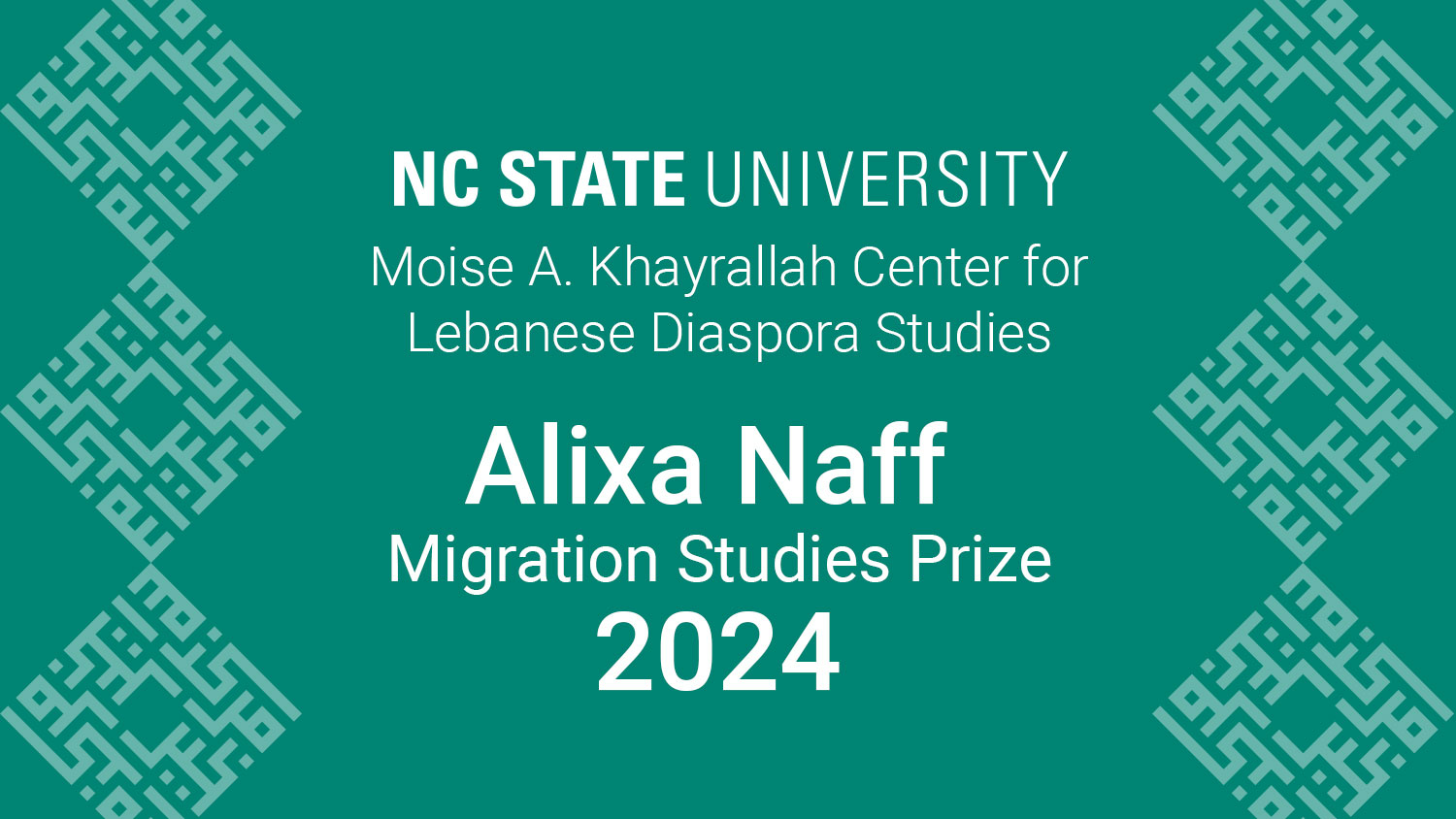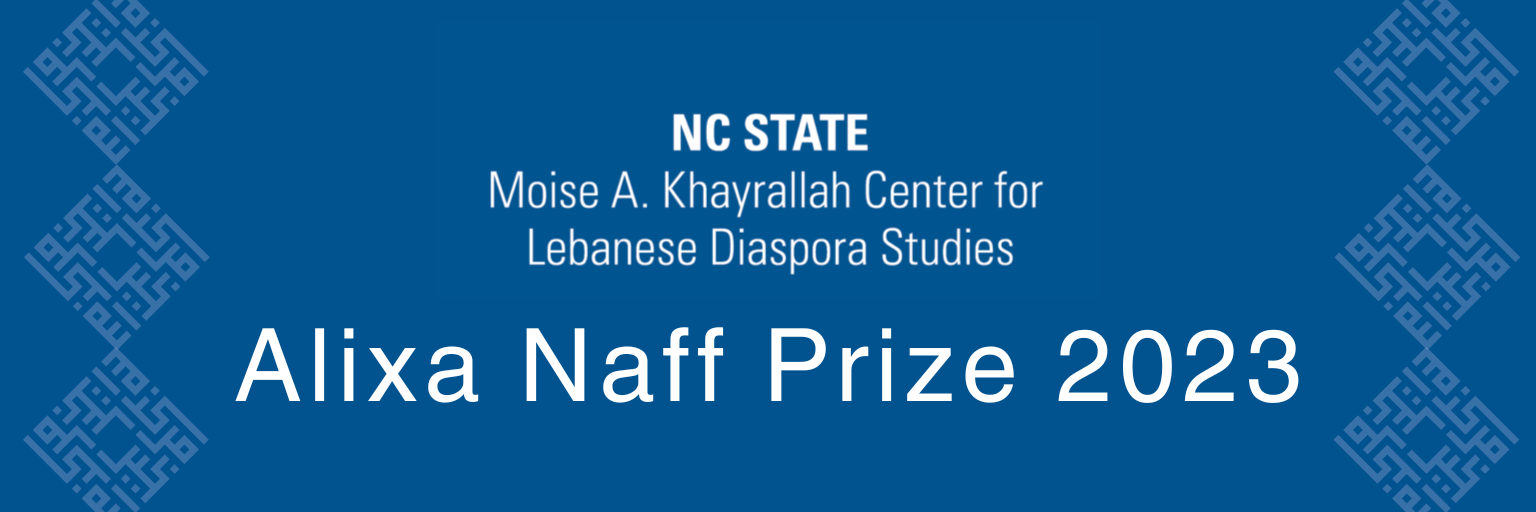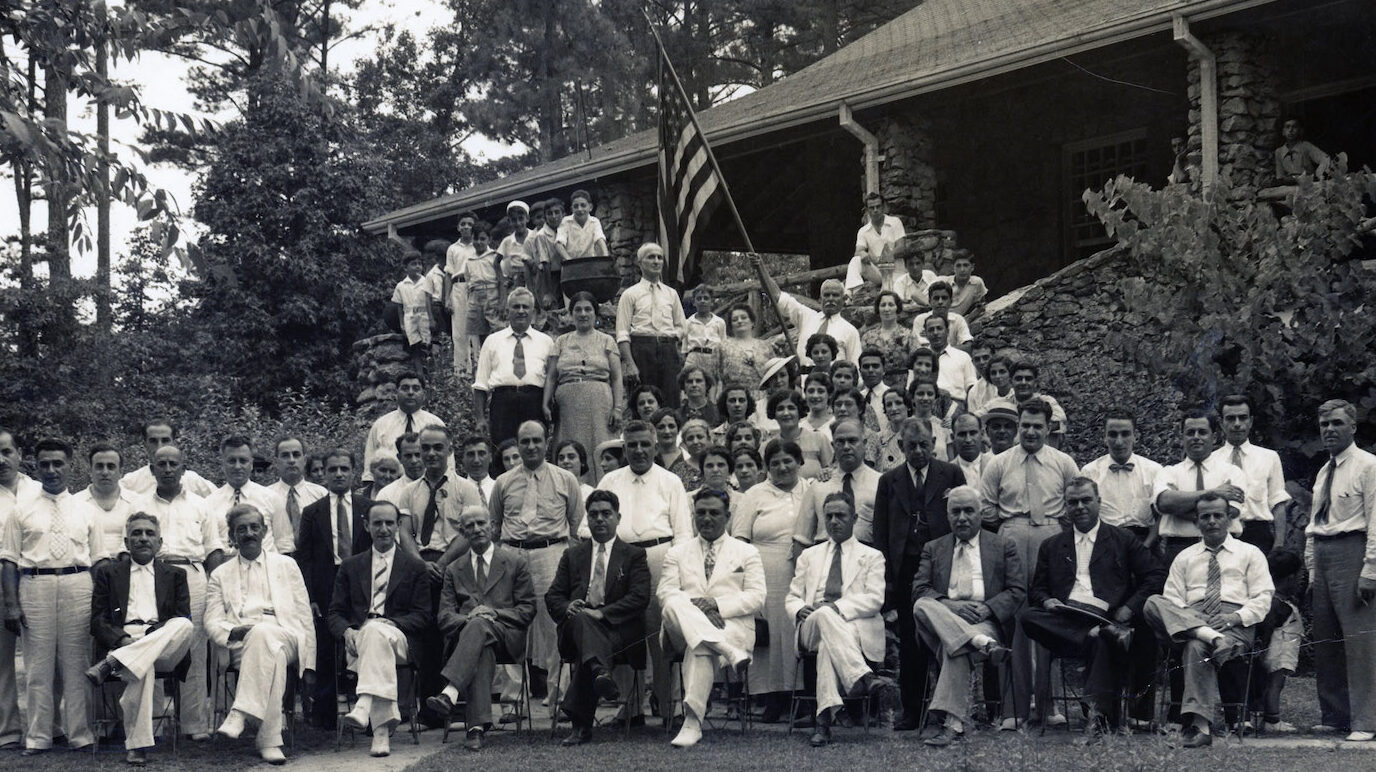The 2023 Khayrallah Prize Winners

The Khayrallah Center is pleased to announce that the 2023 Khayrallah Prize for Best Visual Work is awarded to Sélim Saab for Toxic Hope. The 2023 Khayrallah Prize for Best Literary Work is awarded to Ghassan Zeineddine for Dearborn, published in 2023 by Tin House. Both recipients will receive a monetary award of $5,000.
In its eighth year now, the Khayrallah Prize is an annual award given by the Moise A. Khayrallah Center for Lebanese Diaspora Studies based at North Carolina State University. The Khayrallah Prize identifies, awards and publicly honors those whose original artistic productions and projects focus on any aspect of life in Lebanon, or among Lebanese immigrants, whether in the past or present.
Winner for Best Audio-Visual Work: Sélim Saab
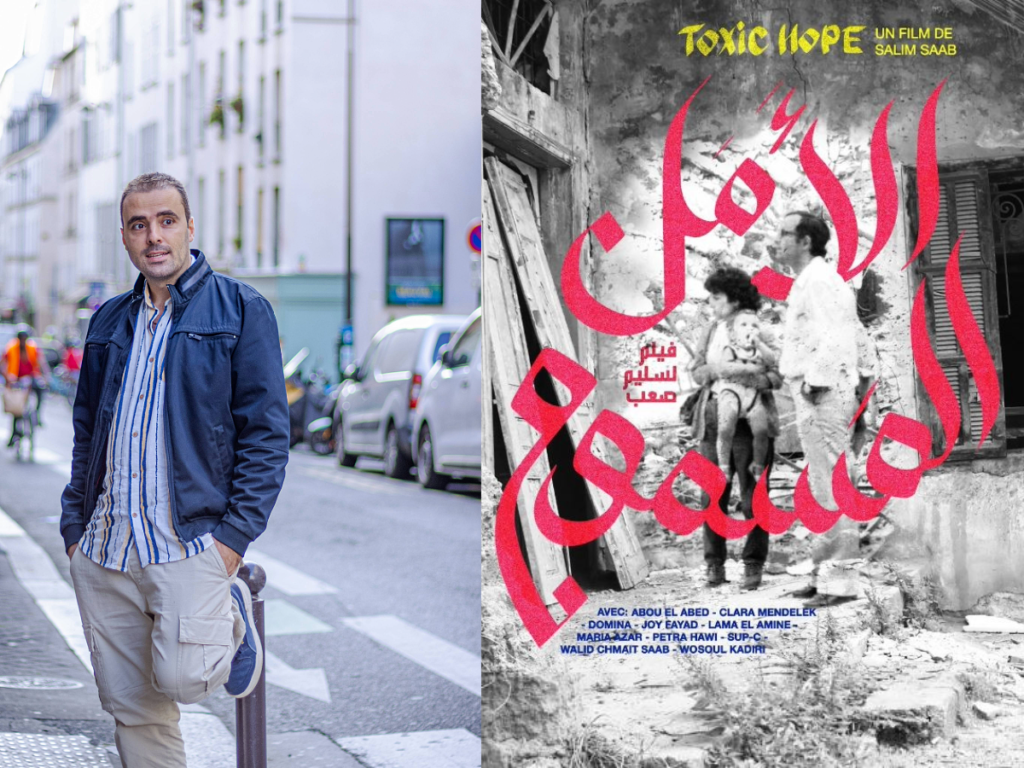
“I made this film because I believe that as Lebanese, our relationship with hope can be toxic. Sometimes we believe in hope, and sometimes we don’t want to hear about it anymore. And as a Lebanese in the diaspora, I always hope to see a better Lebanon.”
-Sélim Saab
In response to receiving this award, Sélim wrote, “First of all, I would like to thank the Khayrallah center which is doing a remarkable work for the Lebanese diaspora. And it’s an honor for me to have won the Khayrallah Prize for my documentary Toxic Hope. I made this film because I believe that as Lebanese, our relationship with hope can be toxic. Sometimes we believe in hope, and sometimes we don’t want to hear about it anymore. And as a Lebanese in the diaspora, I always hope to see a better Lebanon. As I always have hope that our brothers and sisters in Gaza live in safety and peace. Receiving this award is satisfying because it confirms that my message has been understood. That despite all the difficulties Lebanon is going through, we remain hopeful. Because it’s an engine. I also want to thank the people in the film, artists and activists, who gave their definition of hope. Hope which was very present during the October revolt in 2019. Finally, I would like to dedicate this prize to my father, Walid Chmait Saab, present in the documentary and who left us on February 26, 2024. My father always loved Lebanon and never lost hope in this country… For him, for Lebanon and for generations to come, I will continue to fight to bring hope.”
The Khayrallah Prize selection committee was “deeply impressed and moved by the quiet eloquence and power of Toxic Hope.” They appreciate how the film “captured the traumatized lives of the Lebanese who have been through a myriad of crises. Yet, it refuses to see them as victims.” The characters in Toxic Hope “try to overcome forces that are beyond their control as they resist, insist on shaping lives outside the restrictive norms, and as they nurture dreams and hopes that seem impossible-and sometimes are very much so.”
Thank you, Sélim, for sharing this brilliant story with us and the world.
Sélim’s Bio
Sélim Saab is a Lebanese-French movie director, journalist, and radio host. He worked as a freelance journalist for several magazines and from 2013 to 2021 he hosted the radio show Aswat El Madina on the international Pan-Arab radio Monte Carlo Doualiya in France. In 2017, he directed and produced the documentary Beirut Street: Hip Hop in Lebanon – the first documentary about the Lebanese Hip Hop scene. Screened in various countries and festivals, the movie attracted significant international media coverage. In 2018, he released Forte, a documentary about women street artists in the Arab world. In 2020 he released The October Cedar, a one-hour documentary about the October revolt in Lebanon. His latest project is TOXIC HOPE. A documentary about the idea of Hope in Lebanon and how it is perceived in a country that is going through many crises. The film won various awards such as The Best Documentary at the Lebanon International Short Film Festival in Tripoli (2023), The Direction and Criticism award at the International festival of documentary film in Khouribga – Morocco (2023), and now the Khayrallah Prize (2023).
Winner for Best Written Work: Ghassan Zeineddine
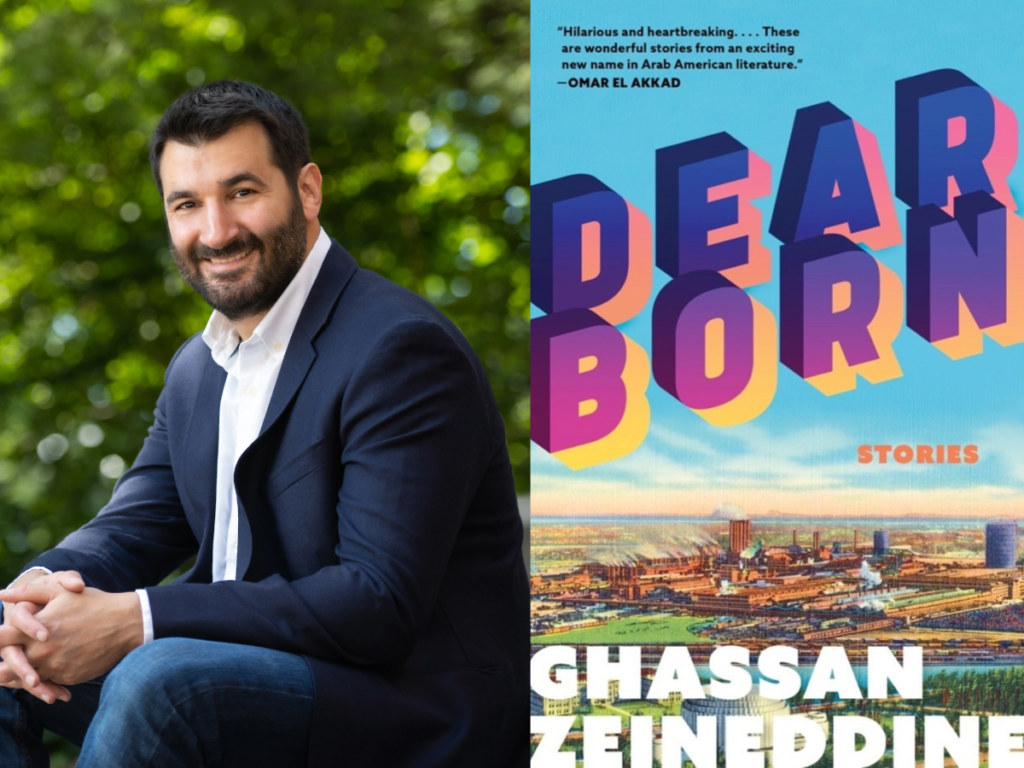
“By telling these stories, I aim to offer three-dimensional portraits of Arab Americans, who are often vilified by western media and pop culture. My hope is that Dearborn will contribute to the growing field of Arab American literature. Joseph Geha’s Through and Through: Toledo Stories (1990), Frances Khirallah Noble’s The Situ Stories (2000), and Susan Muaddi Darraj’s The Inheritance of Exile (2007), are examples of linked story collections that capture the Arab American experience in Toledo, Los Angeles, and Philadelphia, respectively. Dearborn differs from these collections in its representation of multiple Arab ethnicities co-existing in the same locale.”
-Ghassan Zeineddine
What stood out most to the Khayrallah Prize selection committee is the “power and humor of Dearborn” and its “eloquent ability to capture the real and absurd tensions that suffuse the daily lives of Lebanese immigrants in the US, and in particular Dearborn.” Ghassan demonstrates a unique ability to “paint complex images that give space to multiple voices and effortlessly move his characters through transnational lives that collapse space and time.” Dearborn was published in 2023 by Tin House and is described as “masterful and seemingly effortless” in its ability to present a profound understanding of the collective experience adapting to life in the Arab diaspora.
Thank you, Ghassan, for sharing this brilliant collection of stories with us and the world.
Ghassan’s Bio
Ghassan Zeineddine is the author of the story collection Dearborn and co-editor of the creative nonfiction anthology, Hadha Baladuna: Arab American Narratives of Boundary and Belonging. Dearborn was longlisted for the 2023 Story Prize and was named a Best Fiction Book of 2023 by Kirkus Reviews, Booklist, the Chicago Public Library, Powell’s, and the Writer’s Bone, among other places. It is also a 2024 Michigan Notable Book. Zeineddine’s fiction has appeared in the Georgia Review, Prairie Schooner, Michigan Quarterly Review, TriQuarterly, the Arkansas International, Witness, Pleiades, Fiction International, the Common, Epiphany, FOLIO, Grist; A Journal of the Literary Arts, and the Iron Horse Literary Review, among other publications. Ghassan lives with his wife and two daughters in Ohio, where he is an assistant professor of creative writing at Oberlin College.
- Categories:
